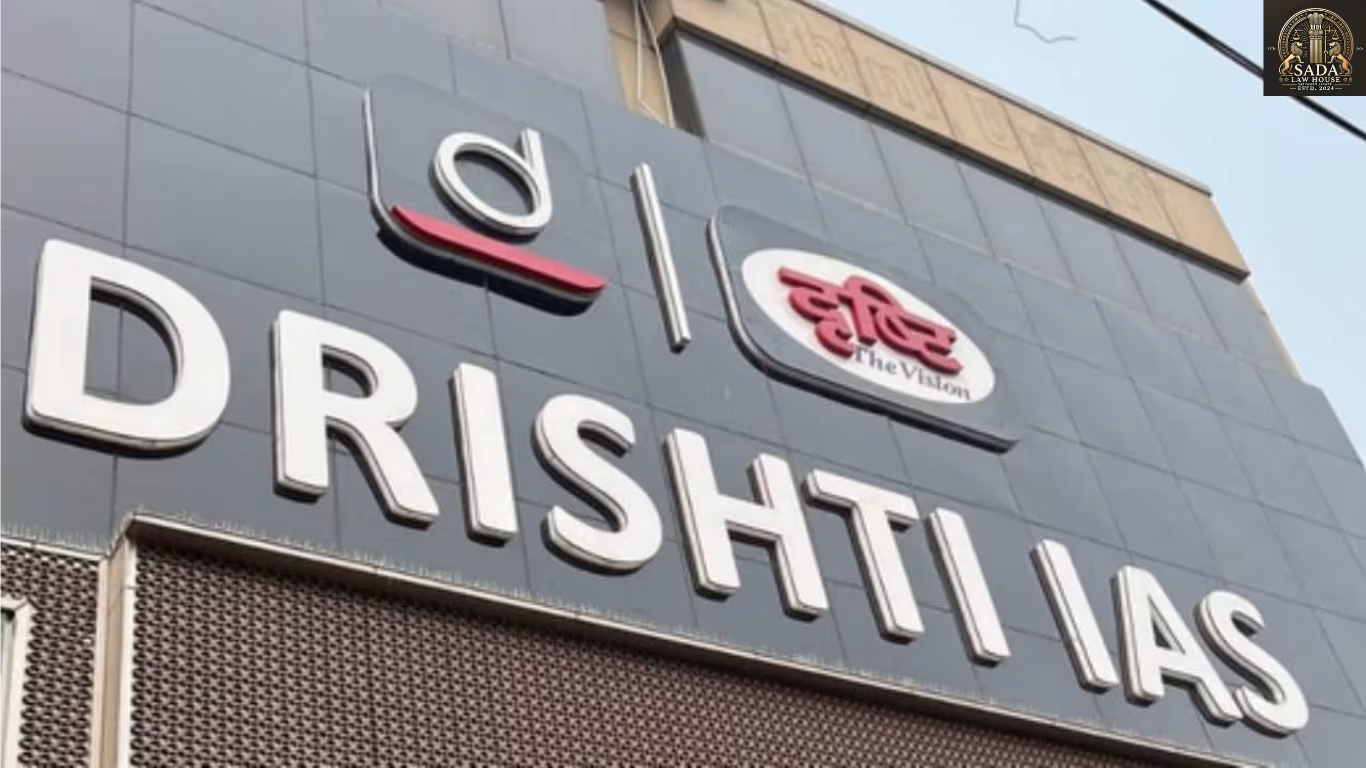CCPA Finds Drishti IAS Misrepresented Success Stories of Candidates
- Palak Singla
- 08 October 2025

Introduction
The Central Consumer Protection Authority (CCPA) has recently taken action against the prominent coaching institution Drishti IAS, operated through VDK Eduventures Pvt. Ltd., for publishing misleading advertisements regarding its claimed success rate in the UPSC Civil Services Examination (CSE) 2022.
Background
Drishti IAS had released advertisements claiming “216+ selections in UPSC CSE 2022”, including the names and photographs of several successful candidates. However, the CCPA found that the institution had concealed crucial details about the type of courses and duration undertaken by those candidates, creating a false impression that all selected candidates were long-term students of Drishti IAS.
Key Findings by CCPA
Upon investigation, the CCPA found that:
Only 54 students were enrolled in the Integrated General Programme (IGP+), which covers all stages from Prelims to Interview.
The majority—162 out of 216 candidates (75%)—had only participated in the Interview Guidance Programme, not in the Prelims or Mains coaching.
The advertisement failed to clarify this distinction and thus misled consumers into believing that Drishti IAS was responsible for the entire success journey of all 216 candidates.
Legal Basis
Under Section 2(28) of the Consumer Protection Act, 2019, a misleading advertisement is one that:
“Gives a false guarantee or is likely to mislead consumers as to the nature, substance, quality, or quantity of any product or service.”
The CCPA concluded that Drishti IAS’s advertisement violated this provision by misrepresenting the extent of its contribution to the candidates’ success.
Penalty and Action Taken
The CCPA imposed a ₹5 lakh fine on Drishti IAS for disseminating misleading advertisements through VDK Eduventures Pvt. Ltd.
The authority emphasized that educational institutions must ensure transparency in promotional claims, particularly when leveraging the achievements of candidates.
The case serves as a precedent highlighting the accountability of coaching institutions under the Consumer Protection Act, 2019.
Conclusion
This case underscores the growing vigilance of consumer protection bodies against deceptive marketing practices in the education sector. As competition intensifies among coaching institutions, authenticity, transparency, and ethical advertising have become crucial for maintaining trust and credibility.






